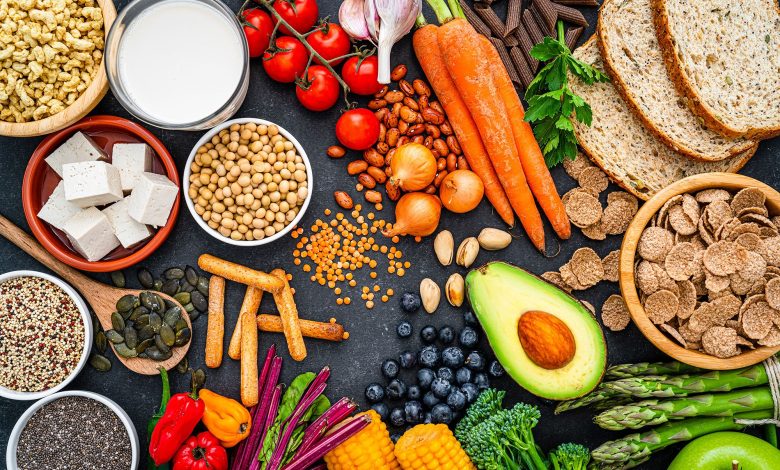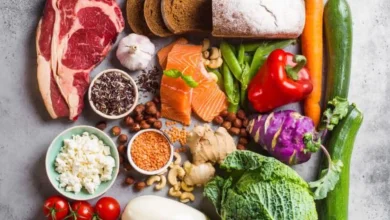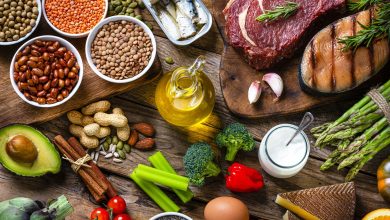Billions aren’t eating enough of 7 critical nutrients. Here’s how to get them in your diet

CNN — Iron and calcium are two nutrients that are essential for the health of the blood and bones, respectively. However, a recent study found that over half of the world’s population does not get enough of these and five other nutrients that are as important for human health.
The study, which was published on August 29 in the journal The Lancet Global Health, concluded that over 5 billion individuals do not get enough calcium, vitamin E, or iodine. Furthermore, the iron, riboflavin, folate, and vitamin C intake of over 4 billion people is inadequate.
According to a press release, co-lead study author Dr. Christopher Free, an assistant researcher at the University of California, Santa Barbara’s Bren School of Environmental Science and Management and the Marine Science Institute, “our study is a big step forward.” Free is an expert in human nutrition as well.
This is “not only because it makes these methods and results easily accessible to researchers and practitioners, but also because it is the first to estimate inadequate micronutrient intakes for 34 age-sex groups in nearly every country,” Free continued.
The most recent analysis found that while previous research has evaluated global micronutrient deficits or inadequate food sources, no global estimates of intake deemed inadequate based on nutritional requirements have been published.
Due to these factors, the research team calculated that 99.3% of people in 185 countries have insufficient intakes of 15 micronutrients. They achieved this by modeling data from the 2018 Global Dietary Database, which includes intake estimates based on information from individual surveys, household surveys, and national food supplies. They did this by applying a “globally harmonised set of age-specific and sex-specific nutrient requirements” to the data.
The writers also discovered distinctions between males and women. The likelihood of women not getting enough iodine, vitamin B12, iron, and selenium was higher than that of males. On the other hand, men were deficient in zinc, magnesium, thiamin, niacin, and vitamins A, B6, and C.
Geographical trends also existed. While low calcium intake was most prevalent in south and east Asia, sub-Saharan Africa, and the Pacific, deficiencies in riboflavin, folate, and vitamins B6 and B12 were particularly severe in India.
According to the news release, research coauthor Ty Beal, a senior technical specialist at the Global Alliance for Improved Nutrition in Switzerland, called the data “alarming.” “Most people—even more than previously believed, in all areas and nations with all income levels—do not consume adequate amounts of several key micronutrients. Globally, these disparities restrict human potential and jeopardize health outcomes.
While the results are novel, Dr. Lauren Sastre, assistant professor of nutrition science and head of East Carolina University’s Farm to Clinic Program in North Carolina, said via email that they are consistent with findings from years of smaller, national studies.
“This is a worthwhile study,” said Sastre, who did not participate in the investigation.
The problems with evaluating diets worldwide
The study contains a number of significant shortcomings. One reason why some of the study’s deficiencies might not be as severe in real life is that some participants may be taking supplements and eating foodstuffs fortified with nutrients, which could theoretically increase their intake of specific nutrients, the authors noted. This is because the research does not account for these consumptions.The authors noted that fortification and supplementation with many of the other nutrients under study are uncommon worldwide.
UNICEF reports that 89% of people globally do use iodized salt. The authors concluded, citing their research, that “iodine might be the only nutrient for which inadequate intake from food is largely overestimated.”
Sastre remarked, “My only criticism is that they didn’t include potassium, claiming there aren’t standards.” In the US, there is a recommended daily allowance for potassium, but most people do not get nearly that much. Additionally, salt must be added to balance it. People are eating far too much sodium and not nearly enough potassium, which is crucial for heart health and blood pressure.
Furthermore, the researchers noted that there is a dearth of comprehensive data on nutritional intake of individuals worldwide, particularly in datasets that are nationally representative or encompass a period of more than two days. Researchers’ capacity to validate their modeled estimations is hampered by this paucity.
Furthermore, even though the team measured insufficient intakes, it lacked information regarding whether those led to deficiencies that need a physician or dietician to diagnose based on blood tests and/or symptoms.
A more nourishing diet
Physicians and dietitians can help you find out if you have deficiencies that can be confirmed by a blood test, or if you’re not getting enough of a particular vitamin or mineral.
According to Sastre, “micronutrients have critical roles in immunity, metabolism, and cellular function.” But we aren’t eating whole grains, fruits, veggies, nuts, or seeds—wherever they are found. We must heed the advice to “eat the rainbow” from the American Heart Association.
The following enumerates the significance of the seven nutrients with the lowest global intake along with a few meals high in each:
1. Calcium: Vital for healthy bones and general wellbeing
Found in dairy products, fortified soy, almond, or rice-based substitutes; dark green vegetables; tofu; sardines; salmon; tahini; and fortified citrus juices (orange or grapefruit).
2. Folate: essential for the growth, development, and function of red blood cells, particularly during pregnancy
● Found in enriched grains including bread, pasta, rice, and cereal; also present in dark green vegetables, beans, peas, and lentils.
3. Iodine: Vital for the development of the thyroid, bones, and brain
● Contains iodized salt, dairy products, eggs, seafood, seaweed, and shrimp.
4. Iron: Vital for growth and development as well as the body’s oxygen delivery
Present in fortified grains, spinach, artichokes, oysters, duck, beef, sardines, crab, lamb, beans, lentils, dark leafy greens, and potatoes.
5. Magnesium: Vital for blood pressure, blood sugar, muscle and neuron function, and the synthesis of DNA, protein, and bone
● Found in whole grains, green leafy vegetables, legumes, nuts, seeds, and fortified cereals
6. Niacin: Vital for the gut and neurological systems
● Incorporated into turkey, brown rice, pumpkin seeds, meat, poultry, and fortified grains.
7. Riboflavin: Vital for immune system function, healthy skin and hair, and the digestion of food for energy
● Found in meats, eggs, cereals, dairy, and green vegetables




